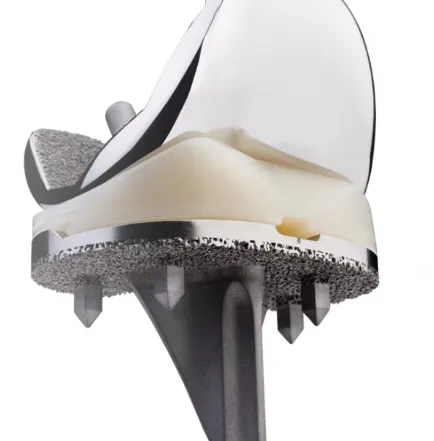Frequently Asked Questions about Joint Replacement (FAQ)
Long-distance travel should usually be avoided until at least after your initial post-operative visit with your surgeon. The concern with long-distance travel is the possibility of the development of a blood clot, or missing a postoperative complication.
Once you are on a long trip, Dr. Morton recommends that you get up to stretch or walk at least once per hour during a long trip. Taking 81mg of aspirin daily is a useful adjunct. Dr. Morton recommends starting aspirin 2 days before your trip, and 2 days after your trip to avoid blood clots. You may want to talk with your primary care physician if you have a history of stomach ulcers, allergies, blood clots, or bleeding disorders. Usually, patients will desire an aisle seat or a lay-flat seat for long distances during their initial recovery.
The answer varies from patient to patient, and whether you have surgery on the right leg or the left leg. As a general rule, you cannot drive if you are on narcotics or unsafe on the road. Patients on average are able to return to driving between 2 and 6 weeks after surgery. I usually advise my patients that if they feel like they wouldn’t be able to stop in the event of an emergency or if a pedestrian suddenly decided to cross the road in front of the car, they should not drive. Practice on a parking lot before driving on the road.
Robotic joint replacement can make bone cuts within 0.5mm of the plan and <1° of expected placement. In comparison, 15-20% of traditional instrumented knee replacements are unable to get within 3° of the expected resection.
Your surgeon is responsible for performing every aspect of the surgery. While the robot assists with improved data collection and bone cuts, the surgeon has to guide the instruments into the right place. The robot is incredibly accurate and prevents surgeons from cutting errors that are imperceptible to the human eye.
Robotic-assisted hip and knee surgery is a newer technology. Not all surgeons were trained in the robot during their training and are not comfortable with learning a new way to perform the same surgery.
Some joint replacement systems require special preoperative imaging (CT scan or x-rays). Dr. Morton does not require additional imaging beyond x-rays for his hip or knee replacement surgeries. During surgery two small incisions are made into your thigh and shin to place the robot trackers.
Pricing programs vary depending on the hospital, implant usage, and physician demand. While a robotic-assisted knee replacement requiring a CT-scan preoperatively will generally cost the hospital an additional $2,000 per patient as reported in some studies, the overall cost to the health system may be decreased due to lower complication rates.
Patients are not expected to pay any more for their robotic hip or knee replacement. Your bill will be the same from the hospital, regardless if you have a robotic-assisted, or traditional knee replacement.
Robotic assistance allows for more accurate placement of your implant, takes into account the positioning of your anatomy, and personalizing the implantation of your knee. Early and mid-term data from studies demonstrate that robotic-placed implants last longer, recover faster, and have lower amounts of pain overall.
Your medical history will be carefully evaluated to ensure that you are a good candidate to return home on the same day after your knee replacement. After a discussion with your physician, we will decide if you can return home safely. We make sure that all of our patients work with a physical therapist to ensure that they can safely navigate the obstacles in their home before being discharged.
Your surgeon will evaluate your medical history and see if you are a good candidate to return home on the day of surgery. With modern medicine, anesthesia, and surgical technique, many of our patients are able to return on the same day as their knee replacements.
Partial knee replacements that are done for the right reasons can last a lifetime. Patients who are heavier, have a higher activity level, or have arthritis in other areas of their knee are at a higher risk for failure. At 10 years, 90% of partial knees done with historical techniques are still functioning well. Using robotic assistance, surgeries are able to have their implants placed in better positions, and the longevity approaches that of total knees, while maintaining the improved kinematics from a partial knee.
Partial knee replacements are a good surgical option for patients who have to isolated osteoarthritis to only one compartment. The knee is made of three compartments – medial, lateral, and patellofemoral. Partial knee replacements in patients with arthritis in more than one compartment are at high risk of failure after a partial knee replacement.
Comparatively, there is less surgery associated with a partial knee replacement. This results in less blood loss, less pain, and quicker recovery. Patients are generally able to return home on the same day of surgery. You are able to shower right away. After about 6 weeks, most patients are able to return to many of their normal activities.
Recovery from a partial knee replacement is generally faster compared to a total knee replacement. Partial knee replacements usually recover between 4 and 10 weeks. Total knee replacements can take between 8 to 12 weeks for a recovery.
Blistering can be a side effect of the bandages or swelling after your replacement. Blistering is a rare phenomenon. If you have blistering, please call me to make sure that there are no complications to be concerned about.
Yes. In order to implant your new knee, we have to move the muscles and soft tissue to the side. Cutting the bone can cause a significant amount of blood flow. This will cause a large amount of bruising and discoloration after surgery.
These devices have fallen out of favor in the orthopedic community. We have found that these devices are expensive and have not made a difference in return to motion after a knee replacement. These have not been used for years by most orthopedic surgeons.
During a knee replacement, we cut through the infra-patellar branch of the saphenous nerve. This nerve is responsible for the sensation on the outside of your knee. This usually disappears slightly with time, but you will always have a numb area there. Some patients can develop a painful neuroma. I am happy to talk about any of your concerns about this numbness.
This is a complex question depending on what job type you are doing.
Desk job: I tell most patients that they will feel well enough to begin working around two weeks after surgery. Some patients who are gung-ho will even start working immediately after surgery.
Light Labor: Light labor that requires frequent walking or light lifting. Some patients may require 6 weeks to 3 months before returning to work. Close monitoring will be needed to help you determine when you are safe.
Heavy labor: Construction and other types of manual labor usually requires at least 3 months of recovery. Some patients will have to change their careers depending on their demands. Talk with your surgeon before returning to work.
We have our patients walking on the same day. patients who are expected to go home will have a course of physical therapy in the post-op unit to ensure that they are safe to go home.
This depends on if you drive a manual transmission car, and if your replacement involves your right or left knee. Patients who undergo a right knee replacement are going to take longer to start driving – sometimes up to 6 weeks.
I allow patients to drive when they reach the following goals: 1. No significant pain while driving, 2. No longer taking narcotics, 3. Able to stop in the event of an emergency such as a small child crossing the road.
Most patients are able to achieve this with a left knee replacement around two-weeks after surgery.
Modern knee replacements are performed on an outpatient basis. Many patients are able to go home on the same day, and sometimes the following day. This is because our pain control and anesthesia have significantly improved. Some patients who do not have adequate support at home will require a skilled nursing facility to recover until they are strong.
Custom implants and customized jigs are a technology that has not demonstrated to have brought significant value for patient outcomes. These devices have not been demonstrated to be more reliable than traditional knee replacements. It is likely because it does not take into account your soft-tissue anatomy at the time of surgery. This is the difference that robotic joint replacements provide.
While the science is conflicting on whether injections are associated with infected knee replacements, many insurance companies have made limitations on joint replacements after injections. If you have an injection, most insurance companies will not support payment for a knee replacement for 3 months after your injection. This is with the health of our patients in mind. Avoidance of infection is of utmost importance as an infection can have devastating consequences.
Robotic joint replacements are a hot-topic in hip and knee replacements. While you may not need a robot to perform your surgery, robotic knee replacements are able to provide a much more accurate positioning of your knee replacements and personalize the implantation to your anatomy. Much like anterior hip replacements are able to position our implants better and improve outcomes, I believe that robotic joint replacements can make the same improvements for knee replacements.
Partial and total knee replacement surgery have excellent track records. There are risks and benefits to both operations. Partial knee replacements often leave patients with a more “natural feeling” knee, while total knee replacements are able to provide the longest term result with lower risk of re-operation.
I usually recommend that people wait three months prior to having any dental work done. Please ask for antibiotics, especially within the first year of your surgery.
Tobacco use is known to be a significant risk factor for loosening, infection, or wound healing problems. Minimizing your tobacco use or quitting before surgery will make a significant impact. If you are able to quit for life, you will significantly reduce your risk of other complications to your overall health as well. Learn more about tobacco effects on joint replacements here.
Some patients find that once they lose a significant amount of weight after bariatric surgery, they do not need to see an orthopedic surgeon for a knee replacement. If you are able to successfully lose enough weight before surgery, you may also reduce the chance of a complication after your surgery. Obtaining a healthy weight should be your goal.
Infections in your mouth are a significant risk factor for a knee replacement infection. We recommend that any evidence of a dental or gingival infection be addressed prior to surgery. Some clinics even require mandatory dental clearance prior to surgery. After surgery, we will often provide patients with antibiotics prior to deep cleaning or any major dental work.
Even if you feel fit and healthy, you may be asked to lose weight before knee replacement surgery if you are heavier. Much of the research on complications following knee replacement surgery has been focused on patients with a high body mass index (BMI). In fact, Queen’s Medical Center will not allow the scheduling of any surgery of patients with a BMI greater than 40. This is because patients who are heavier are at higher risk for the following complications:
– Infection
– Component loosening
– Poor wound healing
– Blood clots
– Pulmonary embolism (blood clot travels to the lung)
Typically, we ask patients to aim for a BMI that is less than 40 prior to surgery. We would prefer patients to obtain a BMI less than 35 as this will significantly lower your risk profile.
Running can put a tremendous amount of stress across your new implant. I would be very careful before starting a heavy-exercise program on your new knee replacement. Despite this, you can still be an athlete and do certain types of activities. The American Academy of Orthopaedic Surgeons (AAOS) recommends the following activities with a total knee:
– Bicycling
– Calesthetics
– Swimming
– Low-resistance rowing
– Gentle Skiing
– Walking & Hiking
– Low-resistance weightlifting
Similarly, the AAOS advises against high-impact activities:
– Baseball
– Basketball
– Football
– Hockey
– Soccer
– High-impact aerobics
– Gymnastics
– Running and Jogging
– Powerlifting
Traditionally, knee replacements were reserved for patients who were elderly with severe knee arthritis. Concerns regarding patients who undergo knee replacement at a younger age are focused on the wear of the knee replacement components. Any patient who is in their 40’s and 50’s is considered “young” for a knee replacement. However, they may still be a candidate for a knee replacement if they understand the limitations of the implant and have failed non-operative treatment.
The average age of patients today undergoing a knee replacement is 65 years old. While patients under the age of 50 are the fastest-growing segment of the population undergoing knee replacement surgery, many orthopedic surgeons have reservations.
Modern knee replacements have made a drastic improvement with the invention of highly cross-linked polyethylene. Polyethylene is the plastic component within your knee replacement. Traditionally, these plastic components are expected to last up to 20 years in 90% of people. With newer plastic components, we are hopeful that knee replacements will last even longer.
There are newer knee components including those made from Vitamin E or ceramic, which may reduce the wear of the plastic component.
The length of time that a knee replacement will last is variable. While the current generation of knee implants are expected to last most of our patient’s lifetimes. Orthopedic surgeons worry that high levels of activity, weight, or other complications such as infection or loosening could lead to the need for revision.
The arthritic pain from before surgery is usually removed following hip replacements. Many patients tell me they have minimal to no pain following surgery initially. Some patients have soreness for up to 2 months. Again, I have noticed that many patients have a lower amount of pain through the anterior approach.
Hip replacement recovery is variable. Many patients are feeling good at 6 weeks. It may take 3 months to a year before you completely recover from your hip replacement. The anterior hip replacement consistently allows for a quicker recovery.
Faster Recovery: The Subvastus Advantage in Knee Replacements
Total knee replacement (TKR) surgery is a transformative procedure for patients suffering from severe knee arthritis or injury. Among the various surgical techniques, the subvastus approach, Quadriceps Sparing Approach, stands out as a minimally [...]
Knee Replacement Success Rate
Introduction Knee replacement surgery, or knee arthroplasty, is a procedure that has transformed the lives of millions of patients suffering from severe knee pain and mobility issues. Traditionally, the success of such surgeries has [...]
Choosing the Right Specialist for Regenerative Medicine: Ensuring Safety and Efficacy
Regenerative medicine is a rapidly advancing field in healthcare, promising innovative treatments that help regenerate tissues, alleviate pain, and restore function. These treatments require technical knowhow when obtaining platelet rich plasma, bone [...]
Demystifying PRP Therapy: Understanding the Science Behind Platelet-Rich Plasma
In the quest for advanced healing techniques, Platelet-Rich Plasma (PRP) therapy emerges as a beacon of hope for those suffering from various orthopedic conditions, including osteoarthritis and tendon injuries like tennis elbow. This cutting-edge [...]
Moving Forward without Cement: The Pros and Cons of Uncemented Knee Replacements
Introduction Modern medicine continues to break new ground, redefining what's possible. One field where innovation is unceasing is orthopedic surgery, and one of the groundbreaking procedures reshaping the sector is uncemented knee replacements. As [...]
Speedy Recovery: Practical Tips for a Faster Recovery After Knee and Hip Replacement
Introduction Hip and Knee Arthroplasty, more commonly known as hip and knee replacement surgery, is a widely performed procedure that offers a new lease on life for individuals grappling with severe knee conditions, including [...]







